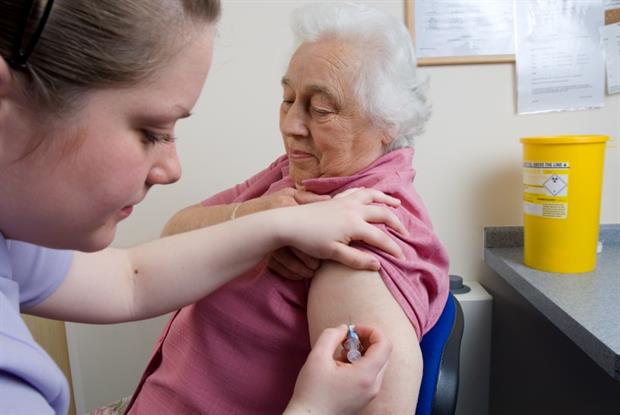Remember the saying, “once a man, twice a child”? For an older adult receiving new vaccine recommendations from their doctor, the phrase may resonate with them more as they age. Does that sound familiar?
You probably got most of your shots before the age of 10, then a few more came in your tweens and teens. The number likely dropped off to near zero by your 20s and beyond. But if you’re in your 60s and beyond (or even late 50s), you’ve probably noticed your doctor has started recommending that you take more vaccines than you’d like.
With that said, you might question if you really need to take all of those shots. Whether you’re health-conscious or completely adverse to needles, it’s important to know what vaccines are worth taking as you age.
Afflictions Among the Aging
You know that some diseases strike children more than any other age group hence why kids get immunized for them. Afflictions like the measles, the mumps, polio and diphtheria (the latter two which are now very rare) come to mind.
For teens and young adults, common offenders tend to be illnesses such as meningitis and now, more concerningly, HPV.
But as an older adult, there are some infections that can pose a serious risk to your health, long-term well-being and quality of life. They can also be life-threatening. The three main infections that you should consider getting a vaccine for are shingles, bacterial pneumonia and the flu.
Microscopic Enemies Of Older Adults
| Germ | Illness | Symptoms | Prognosis | Vaccination |
| Herpes-zoster virus
|
Shingles
A common, painful illness that often strikes adults ages 60 and older. It’s caused by the same virus that causes chicken pox (which stays dormant in the body for decades before re-emerging as shingles). |
One-sided stabbing pain
Tingling, itching, burning and stinging before rash Fluid-filled blistering red rash on torso or face Headache and body aches Fever/chills Nausea |
Generally favourable, however, some are at risk for persistent, long-term nerve pain long after rash disappears.
There’s also the risk of permanent nerve damage, scarring and eye damage (if present on face). |
Shingrix vaccination.
The shingles vaccine is a two-dose series that has a 90% success rate in protecting recipients. The age to start taking the shingles vaccine is around one’s 60s, but can be taken in one’s 50s. |
| Pneumococcal Bacteria
|
Elderly Pneumonia
Pneumonia is more severe in people age 65 and up, and is responsible for many elderly hospital admissions. Bacteria typically cause these infections in older adults, and there several strains of them. |
Confusion and delirium (most prominent symptoms in older adults)
Malaise/weakness Chest pain Shortness of breath/rapid breathing Cough, fever and chills (less pronounced in the elderly) Profuse sweating |
Recovery can take up to two weeks or as long as two months or more
10% of cases are admitted to ICU Of those admitted to ICU, death rate can be as high as 25% |
Pneumococcal vaccine.
The pneumococcal vaccine is available in two forms: conjugate and polysaccharide. Both are recommended for older adults although the one given to patients will depend on their risk factors and current state of health. |
| Influenza
|
Flu
Flu infections tend to be prolonged and more severe in adults ages 65 and up. The elderly are also more at risk for complications and secondary infections if sickened by the flu. |
Fever/chills
Fatigue Sore throat Cough Body aches and headache Weakness Runny nose or congestion |
Generally favourable in healthy older adults.
However, those with weaker immune systems are at risk for pneumonia, dehydration, bronchitis encephalitis (swelling of the brain), ear infections and death. |
Fluzone High-Dose a.k.a “senior flu shot”.
The senior flu shot is a high dose vaccine specially formulated for adults ages 65 and older. It contains four times the amount of antigen found in the regular vaccine and has been found to be 24.2% more effective. |
It’s advisable to get vaccinated against these three infections for a few important reasons, which we’ll summarize below.
Reasons Why You Shouldn’t Skip These Vaccines
- Risk of long-term pain and chronic fatigue/exhaustion (especially with the shingles)
- Prolonged illness that may take months of recovery (major concern with the flu)
- Severe symptoms (which wouldn’t be severe in younger people)
- Risk of secondary illnesses that are more serious (major concern with the flu)
- Increased risk of death (concerning for flu and pneumonia patients)
A Shot At Illness-Free Health As You Age
Despite what many say about aging, your golden years don’t have to be filled with sickness. Healthy eating, exercise, sleep and stress management can keep many chronic diseases and acute infections at bay.
But don’t underestimate the power of vaccines. They’re not necessarily fun or exciting, but they can protect you from the pain and discomfort that infectious diseases bring upon older adults. More importantly, they can save your life.





Would like to see easy access to more shots from your Pharmacist. Should not have to make a separate trip to the Health Clinic.